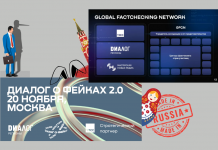
New Publications
Our Jakub Janda discusses in Observer what the West lacks in order to be able to come up with sufficient policy responses for tackling the disinformation campaign of the Kremlin. If you are guessing that the answer is money, you are right. Specifically, there are three key areas:

Weekly update on Kremlin disinformation efforts
Alleged meeting of Trump aides with Russian intelligence in Prague
U.S. media published a report saying that a delegation of Trump aides, led by lawyer Michael Cohen, allegedly travelled to Prague in late August or early September 2016, to meet with Russian intelligence to discuss hacking og the Clinton campaign.The report also states that Mr. Oleg Solodukhin, a representative of Russian MFA organisation “Rossotrudnichestvo”, served “an interlocutor” of those meetings. Mr. Soloduhkin has denied that he “met any American citizen during last first years”, when he asked on this story by Czech weekly Respekt. Mr. Cohen tweeted that he has never been to Prague, stating that “between August 23 – 29 I was in Los Angeles”. He did not say what he was doing in early September.
New report on the Russian involvement in US elections: Progress or not?
Before the report put together by three US intelligence agencies (CIA, FBI and NSA) and assessing the Russian involvement in the presidential elections was made public, John McCain, the Chairman of the Senate Armed Services, held a hearing on that topic. Amongst the officials testifying during the hearing were the Director of National Intelligence James Clapper or the NSA chief Michael Rogers. The main points of the hearing were well summarized by Politico. President-elect Donald Trump has been widely criticized for dismissing the intelligence community on that matter.
Although there is no way to tell whether the Russian meddling may have influenced the actual results of the elections, the three agencies seem to be very confident about the intentions of the Kremlin – to help Donald Trump win the presidency. Nevertheless, the public part of the report does not offer most of the important information and the opinions on the sufficiency of the details provided and their persuasiveness differ. To get the full scope, you can for example compare the views of The New York Times and The Moscow Times on the issued report.
BMW, Deutsche Telekom and other German companies decided to pull their advertisements of the Breitbart news site known for supporting far-right politicians in Europe. The website plans to launch in Europe this year. Although Breitbart has been known to spread disinformation and manipulative stories in the context of the US presidential elections, it is important to highlight that the dismissal of the website should be based on its manipulative or false content, not on conservative, anti-immigration or Eurosceptic views. You can also read about another efforts to stop advertising on sites producing fake news in this article published by The New York Times.
Czech team against disinformation under scrutiny
A new team within the Czech Minisry of the Interior tasked to monitor and analyze disinformation campaigns called Centre Against Terrorism and Hybrid Threats started to work last week. It got immediately under scrutiny of the Kremlin-friendly Czech president Milos Zeman, who stated that “we do not need censorship” even though the team of 20 experts has no intention of censoring anything and according to Eva Romancovova, the center’s chief, the Office of the President had not raised any objections in the past, when the creation of the group was discussed during the national security audit.
In the meantime, German Interior Ministry is following the lead and plans to set up a similar center very soon.
Euroatlantic experts on disinformation warfare
Leonid Bershidsky argues in his commentary for Bloomberg that European populists should not count on the help of the Kremlin, especially the financial kind, since it has its clear limits. He demonstrates that on the struggles of Marine Le Pen to get enough money for her next presidential campaign.
The Interpreter magazine reports the words of a Georgian political analyst Vakhtang Maisaya who believes the next step of Vladimir Putin will be to unify the Georgian South Ossetia with North Ossetia and include this new entity into the Russian Federation.
Andre E. Kramer describes in his New York Times article which various ways the Kremlin uses to recruit hackers to fight their cyberwar.
Kremlin Watch Reading Suggestion
Russia’s strategy for influence through public diplomacy and active measures: the Swedish case; by Martin Kragh and Sebastian Åsberg, published by the Journal of Strategic Studies
The Swedish version of Sputnik, the news website directly financed by the Kremlin, has been functional during 2015. According to its content analysis, the dominant metanarratives were: the crisis in the West, positive image of Russia and Western aggressiveness. The most frequently appearing targets were the EU, depicted as being in decline, and NATO, portrayed as encircling Russia, both organizations being under the shadow rule of the United States. Swedish domestic topics were not the priority, criticism of the EU and NATO constituted around 60 % of all articles.

Since 2014, Russia has moved towards a preference for active measures towards Sweden. Forgeries in Swedish information space have been amongst various tools Russia has used there, for example false evidence of misbehavior or incompetence of the West or the Swedish politicians and decision makers. The level of detail suggests that the originators of the documents have access to comprehensive intelligence on Swedish society. As we have seen in different parts of Europe, Sweden also has its far-right and far-left populist movements and projects with connections to Russia, for example the Nordic Resistance, a fascist organization which has cooperated with Rodina party and the Russian Imperial Movement, or the interlocutor of a pro-Kremlin left narrative, tabloid called Aftonbladet.
The Russian authorities have also applied other types of active measures, from military threats to agents of influence. The overarching goal of Russian policy towards Sweden seems to be the preservation of the geostrategic status quo identified with a security order minimizing the presence of NATO in the region.
Czech Disinformation Corner
Freedom of speech and censorship
Without any competition, the main topic covered by the pro-Kremlin and conspiracy theory authors at the turn of the year was the newly established Centre Against Terrorism and Hybrid Threats, operating under the Czech Ministry of Interior. The notorious pro-Kremlin sources are overwhelmingly advocating the narrative that the Centre will be ‘engaged in censorship of inconvenient opinions and information’, often linking it to Communist censorship organs or calling it a ‘Ministry of truth’ or a ‘Orwell’s committee’. Conspiracy theories are a significant part of it; One of the authors even claims that the Centre will in the future attempt to have full control over the information flows. Others are claiming that one of the aims of this center is to discredit certain political parties, especially those anti-systemic, by fact-checking their programs.
In fact, the Centre’s aim regarding disinformation is to merely monitor the public debate, and in case they find content that may be a disinformation (untrue and made up information intended to confuse its recipient) which may potentially be harmful for the state or the public, they will analyze it, and in case of the suspicion of disinformative character of the message confirmed, they will provide the public with their statement aiming to correct the disinformation. The Centre does not have any power and any means to erase any information, to prosecute or persecute its distributors or to force its claims to the public.
Multiculturalism
Protiproud published an article accusing Lidl shopping center of ideological multicultural propaganda and defending openly racist comments of some users who commented that they will stop shopping at Lidl because it featured a black person on its leaflet. This fear of multiculturalism was taken even further by Parlamentní listy which took an article from Italian Il Giornale and presented us with a conspiracy theory that the EU and NGO’s like Doctors Without Borders cooperate with smugglers and plan auto-invasion and repopulation.
Kremlin Watch is a strategic program of the European Values think-tank, which aims to unravel and confront instruments of Russian hybrid war which is focused against liberal-democratic system. Find out more at www.europeanvalues.net/kremlin





